If you love the flavor of basil, drying your own basil leaves will ensure that you have flavorful herbs to cook with all year long. Basil should be harvested just before it flowers for maximum flavor. The best way to dry basil is by hanging it upside down in a warm, dry place. If you're in a hurry, though, you can dry basil in the oven or a food dehydrator instead.
- Prep time: 2-3 weeks
Part One of Three:
Harvesting and Trimming the Basil
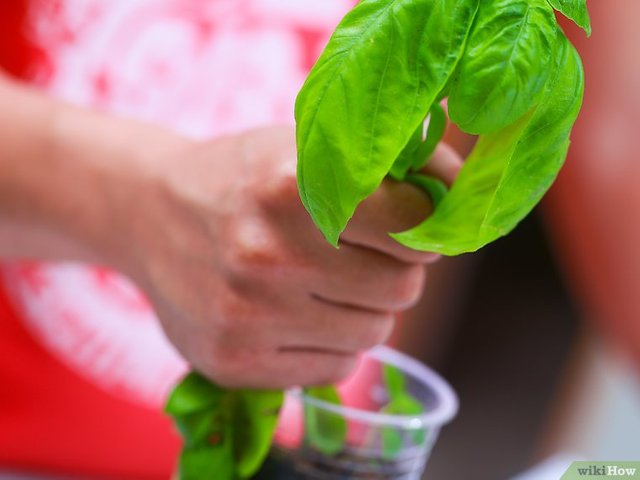
Harvest the basil just before it flowers. Basil will flower after all the leaves on one stem are full-grown, but the herb loses some of its flavor after flowering occurs. The flowers appear in the middle of a bunch of leaves in a pyramid shape. Plan to prep and dry basil once all the leaves have sprouted, but before you see flowers on the stems.
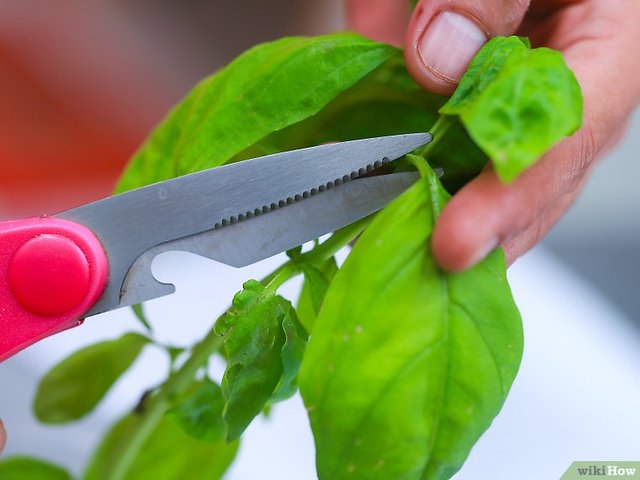
Cut basil leaves from the stems. Separate bunches of basil leaves and cut the individual leaves from the larger stem. Separating them will help you lay them flat and clean them properly. Leave a small length of stem, no more than an inch, at the bottom of each leaf to help you bundle them and tie them together.
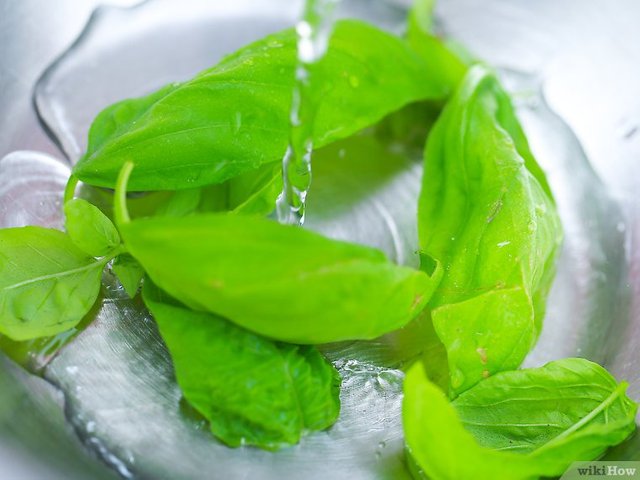
Rinse the leaves well. Rinse cut basil leaves under cold water before drying them. This will remove any dirt, chemicals or other debris that may have fallen onto the leaves while growing or while being shipped if your basil is store-bought.
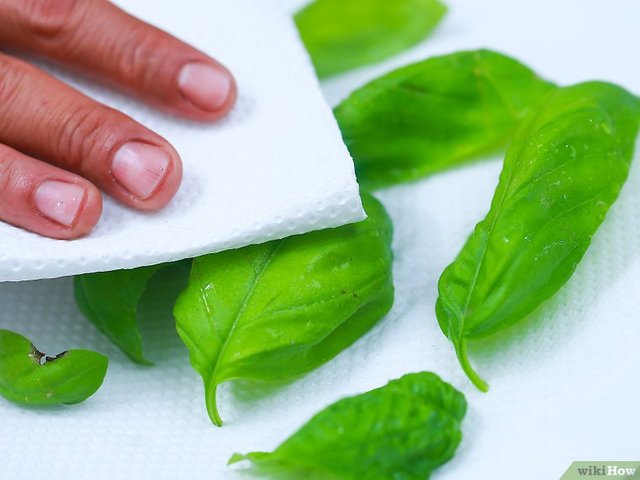
Pat the rinsed leaves dry. Lay the rinsed leaves on a paper towel and gently pat them dry with a second paper towel. Removing excess moisture before drying basil will prevent molding during the drying process.
Part Two of Three:
Hanging the Basil to Dry
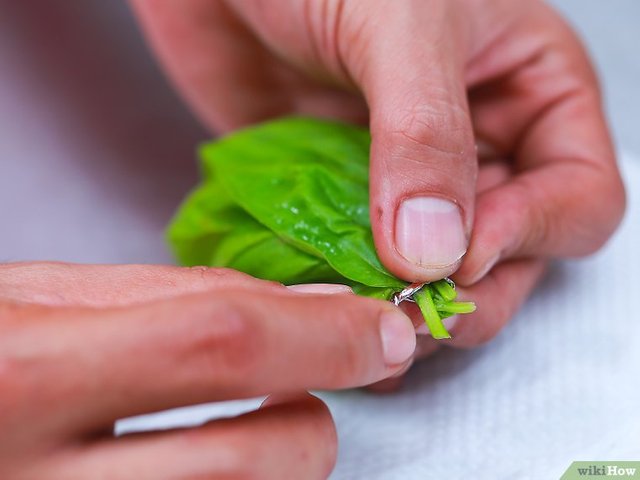
Gather the leaves in bunches. Group the prepped leaves in a bundle and tie them together at their stems with a rubber band or twist tie. Make more than one bundle if you have lots of basil leaves.
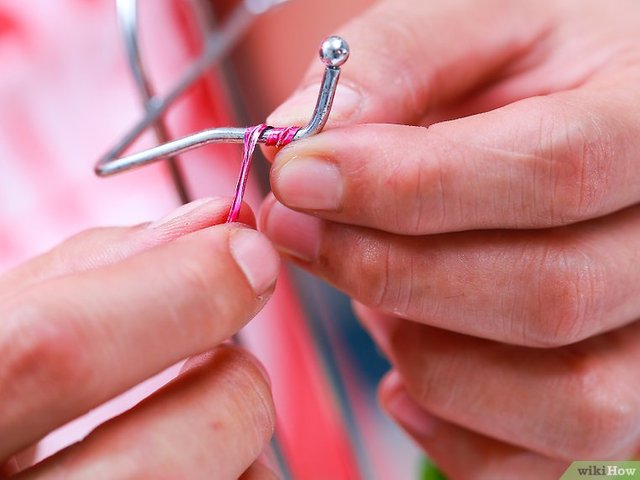
Hang leaves to dry. Hang your bundles of basil from a hook or wall tack to dry. You don't have to hang them in your kitchen, but make sure you choose a place with freely circulating air and moderate sunlight to aid the drying process. Choose a room with a window that can be opened to let air and sunlight in and preferably one where bugs won't be able to get to your drying herbs.
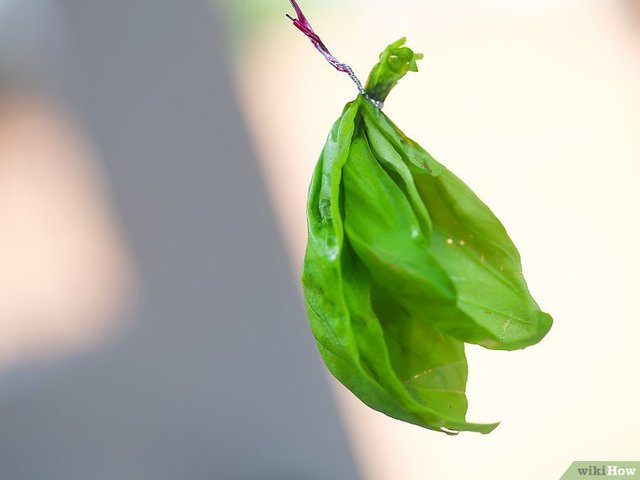
Let the basil hang for two weeks. Your basil will be dried and ready to use in about two weeks or when the leaves are dark green, dry and brittle to the touch. If the leaves or stems still feel a little flexible, let them hang another week.
- Remove the rubber band or twist tie, separate the dried basil bundle and crumble the dried leaves with your fingers. Store them in a labeled jar or container for future use.
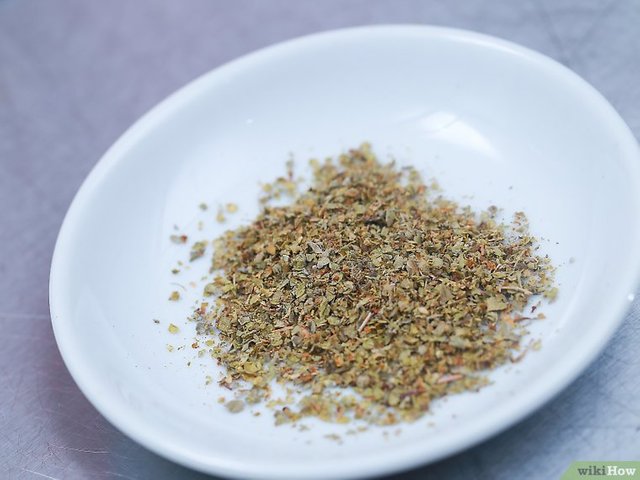
Use the crushed dried basil now in your recipes.
Part Three of Three:
Using Quick Drying Methods
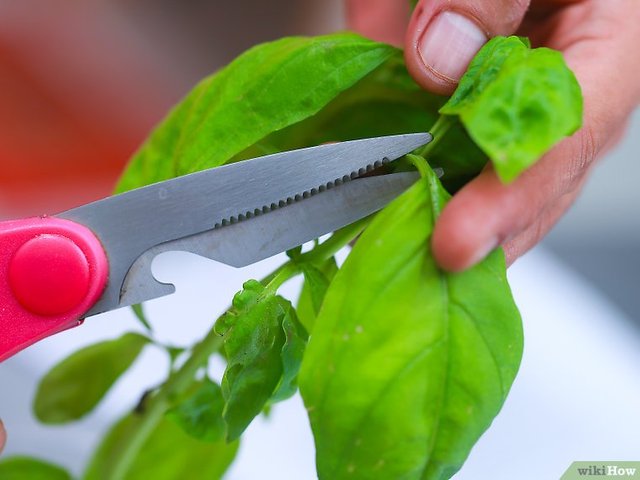
Remove the leaves from the stems after harvesting. If you want to dry the leaves more quickly, you can go ahead and remove the leaves from the stems. Discard the stems along with any leaves that are bruised or broken.
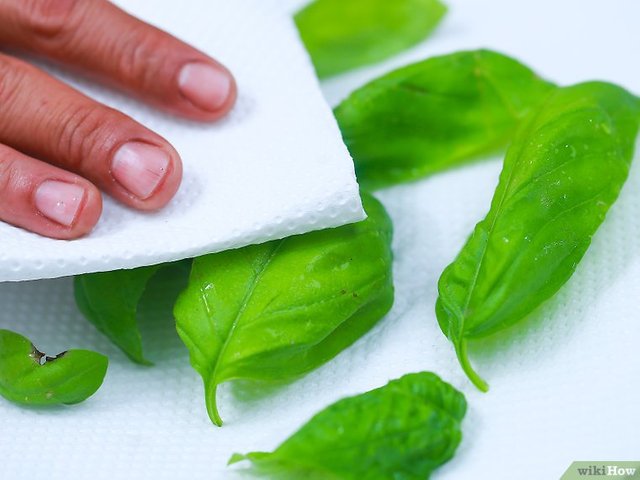
Rinse the leaves and pat them dry. Rinse them gently in water, then set them on paper towels and gently pat them dry.
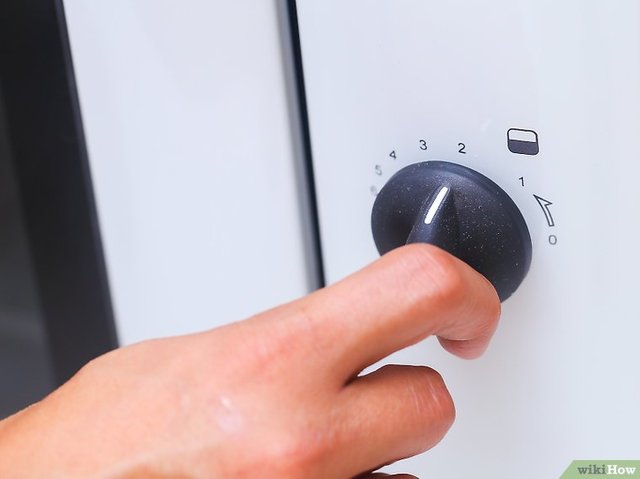
Prepare your oven or food dehydrator. Basil leaves dry beautifully in either an oven set to very low heat or a food dehydrator.
- If you're using the oven, set it to the lowest temperature - 200 °F (93 °C) or lower.
- If you're using a food dehydrator, ready it for operation according to the manufacturer's instructions.
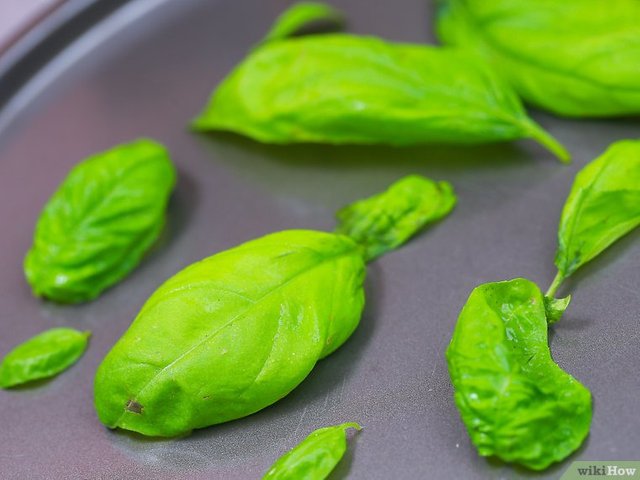
Spread the leaves on trays in a thin layer. Either spread them on a baking tray or the food dehydrator tray. Make sure none of the leaves overlap. They should be arranged in one thin, even layer.
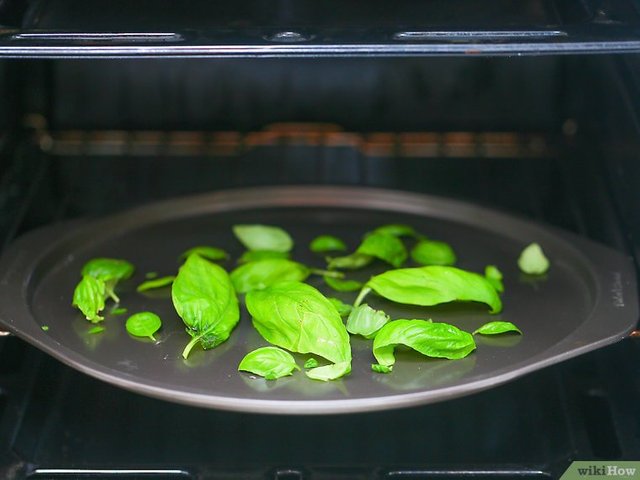
Dry the leaves to the correct moisture content. The leaves should be dried over the course of 24-48 hours until they are no longer moist; they should crumble easily when pinched between your fingers.
- If you're using the oven, place the tray of leaves inside the preheated oven and let them bake for 20 minutes. Turn off the oven and leave the leaves inside overnight. In the morning, they should be sufficiently dry.
- If you're using the food dehydrator, place the tray of leaves inside and operate the food dehydrator for 24-48 hours.
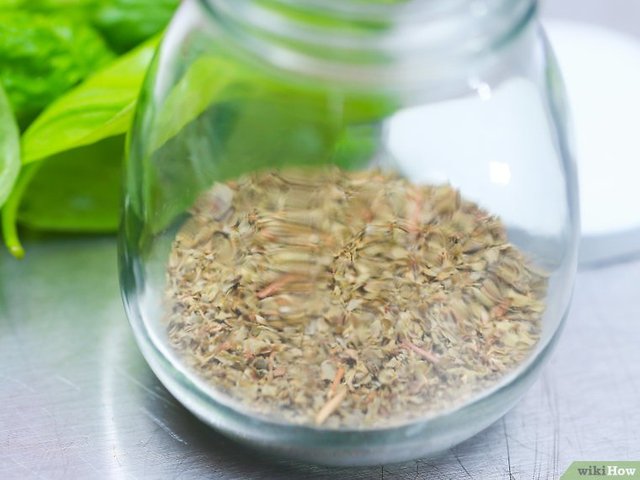
Store the dried leaves. You can store them whole in plastic food storage bags or bins, or crush them and store them in spice bottles.
Source: https://www.wikihow.com/Dry-Basil
Tips
- Cultivate the Basil in semi-shady places, protected from strong winds.
- Watered often, every 2-3 days, in small quantities, while on hot summer days on a daily basis.


upvote and follow plz
Downvoting a post can decrease pending rewards and make it less visible. Common reasons:
Submit
Please follow me and upvote my first post. Resteem it. Lets make this year unbelievable!!
Downvoting a post can decrease pending rewards and make it less visible. Common reasons:
Submit
This post has received a 1.04 % upvote from thanks to: @netm, @netm.
thanks to: @netm, @netm.
For more information, click here!!!!
Send minimum 0.100 SBD to bid for votes.
Before sending a transfer to @minnowhelper, verify that your publication meets these conditions (http://www.minnowhelper.com/conditions.php). After the transfer is made, no claims will be received.
The Minnowhelper team is still looking for investors (Minimum 10 SP), if you are interested in this, read the conditions of how to invest click here!!!
ROI Calculator for Investors click here!!!
Downvoting a post can decrease pending rewards and make it less visible. Common reasons:
Submit
Resteemed by @resteembot! Good Luck!
Curious?
The @resteembot's introduction post
Get more from @resteembot with the #resteembotsentme initiative
Check out the great posts I already resteemed.
Downvoting a post can decrease pending rewards and make it less visible. Common reasons:
Submit
Hi! I am a robot. I just upvoted you! I found similar content that readers might be interested in:
https://www.wikihow.com/Dry-Basil
Downvoting a post can decrease pending rewards and make it less visible. Common reasons:
Submit
This post was resteemed by @steemvote and received a 41.65% Upvote
Downvoting a post can decrease pending rewards and make it less visible. Common reasons:
Submit